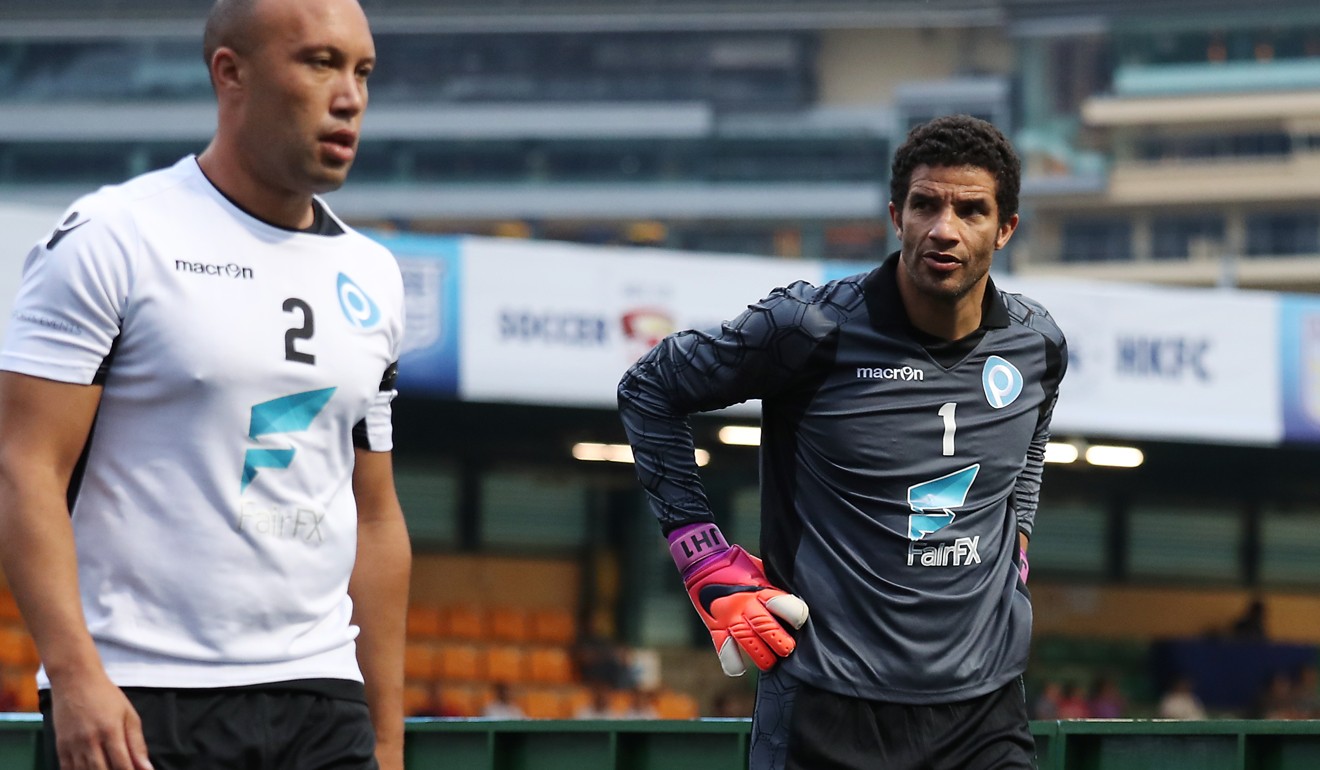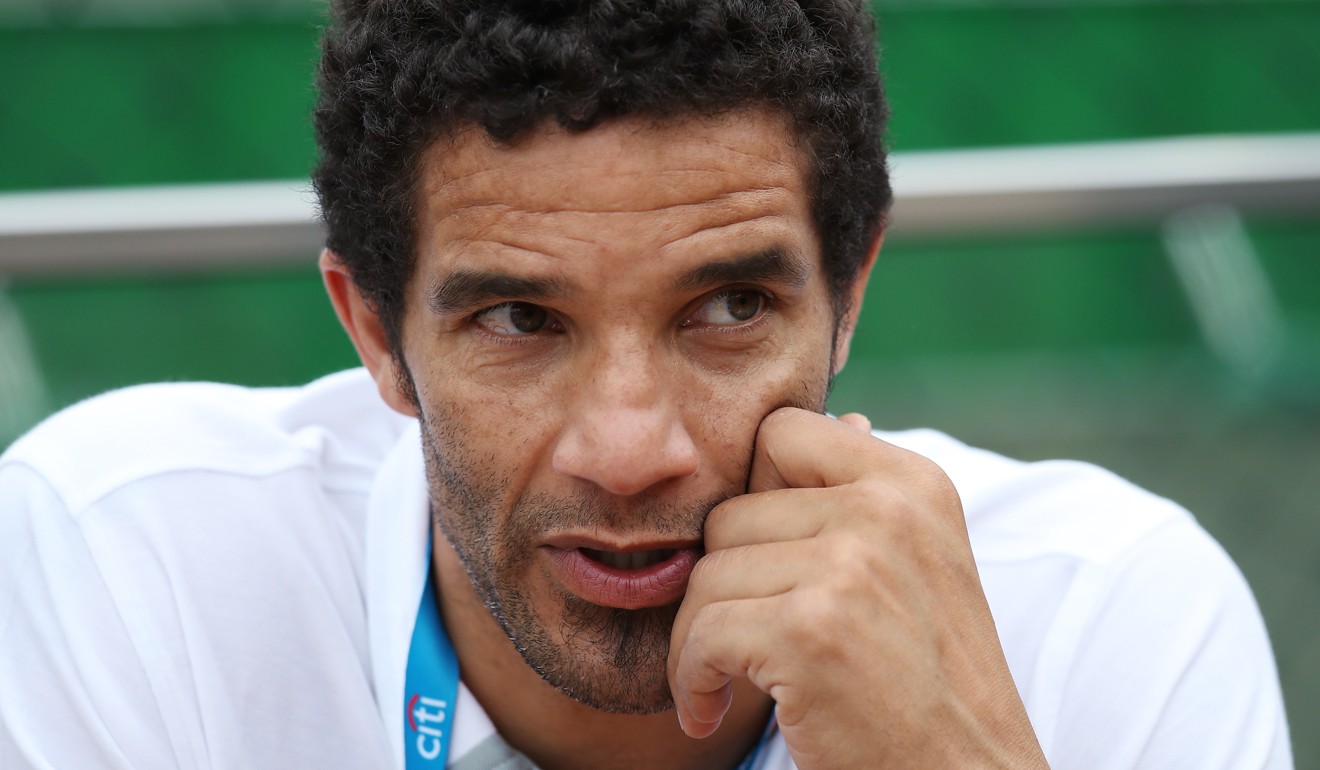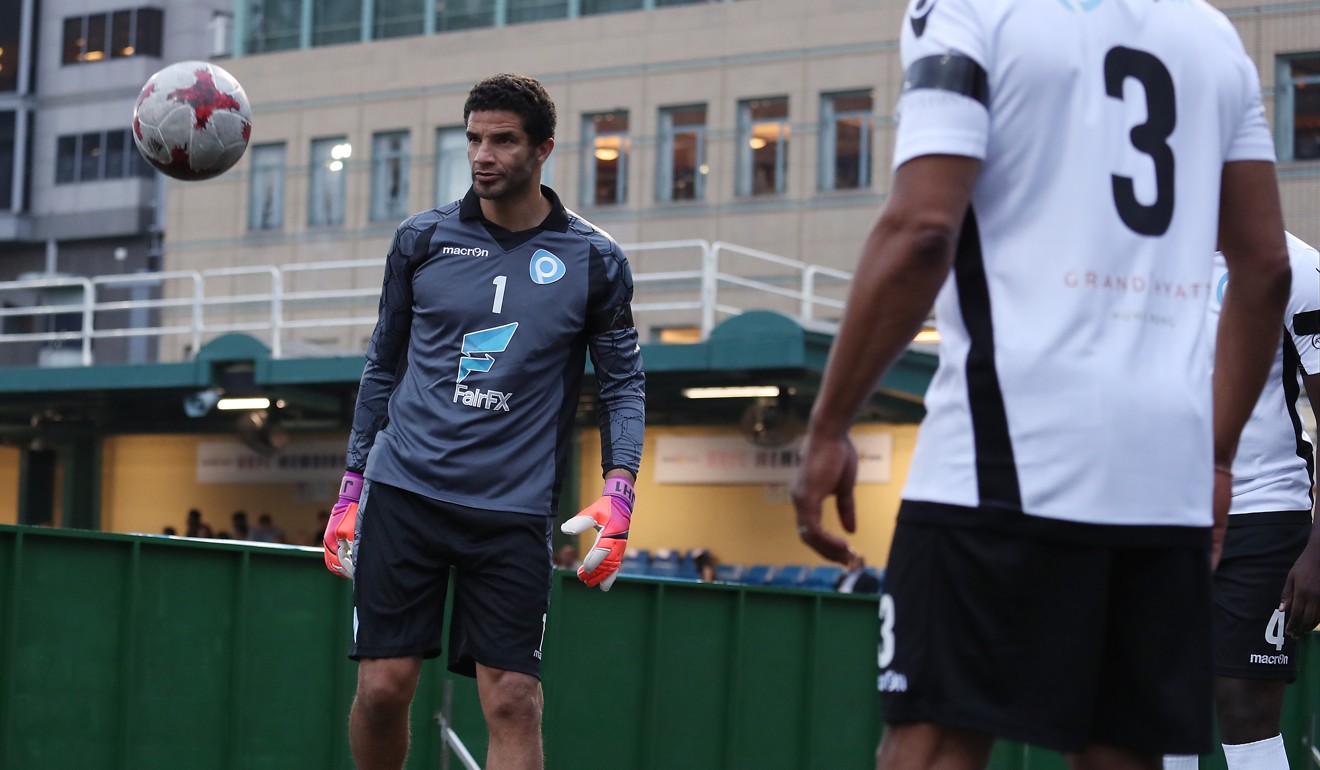
‘Football doesn’t deal well with mental health issues’ – ex-England star David James on life after the spotlight dims
Former star goalkeeper in action in Hong Kong for Playon Pros, representing an organisation devoted to supporting players when they return to ‘real world’
Former England international goalkeeper David James is in Hong Kong this week competing at the HKFC Citi Soccer Sevens. The 46-year-old is representing Playon Pros, who are making their debut at the tournament.
Playon is an organisation that was founded by a group of former players that aims to support footballers after they retire from the sport.
Figures from world football players’ union Fifpro indicate that up to 35 per cent of professional footballers suffer from mental health issues after retiring from the game.
The Post asked James about how he handled his departure from football and whether he believes more should be done to safeguard players when their careers end.
What are the main challenges that retired players face?
It depends why you retire. The ideal way is through your own choice, but that’s not a luxury that many players actually get for one reason or another. You tend to find that injury is a big reason for players retiring and even now, as a player that didn’t get too many injuries, having to deal with the fact that you’re not as physically capable as you used to be ... I had an operation on my knee which curtailed my career. There’s a difference between what your head thinks you can do and what you can actually do. Even though I didn’t have a major injury, it was coming to terms with the fact that I couldn’t do what I used to do. Another hard one is coming to terms with the fact that nobody wants you anymore. That usually comes with longevity. You get to the point where you’re not as good as you were. When you get older nobody wants to take a chance on you.

A lot of retired players miss the camaraderie of being around a team. Is that an issue for you?
I only stopped playing a couple of years ago, so it’s not as though I’ve had a long time out of the game.
I did my coaching badges and fortunately Luton let me go in there so I used to get my fix there. The reality with football is that it’s nice when you get the chance to play a game, like here at the Hong Kong Soccer Sevens, but the physical exertion in training for professional footballers is massive. People can’t comprehend just how much training there is for a professional. And it’s very difficult going from that, to nothing. A lot of retired players put on weight.
Why do you think mental health is such an issue for retired players?
Mental health is an issue for people everywhere. If people think footballers are immune to it, they’re being ridiculous. There are plenty of high-profile players who have had mental health issues. Football is an industry that doesn’t deal well with people with mental health issues, that generally doesn’t help people with these issues because you’re constantly in the public scrutiny. With today’s social media platforms you can be in the public eye 24/7. Avoiding that is difficult. I’ve never had to call on the PFA [Professional Footballers’ Association] for support, so I can only go off what people have told me, but there are people out there who can help players. The only problem is a lot of the time when people have mental health issues they don’t realise it.

Do you think there should be more initiatives like Playon to support retired players?
Having a group of people like those involved with Playon to speak to ex-players is a good thing.
Players can become so conditioned in football. These are lads who have been doing this since they were eight or nine years old, and quite often they get into this condition where everything is done for them. If they need something, they shout and somebody goes and gets it for them. I’ve spoken to player liaison officers who talk about guys who don’t even know how to pay their own phone bill. They have their hand held all the way through the system and when they get to the other side, those people aren’t there for them. I’ve often spoken to people at clubs who maintain this illusion that the club is always there for them, but as soon as you’re not part of that club, the chances are that they just disappear.
Do you think the responsibility for a players’ post-career should lay with the clubs?
No. It’s a job. We have to be right about that. I think it’s wonderful when you see ... Steven Gerrard as an example – he’s just retired, he is still in the Liverpool system with his coaching and that’s nice. But it’s nice for Liverpool too because it’s Steven Gerrard. It’s a business at the end of the day. There were probably 100 footballers in the last 10 years at Liverpool who you will never hear of again associated with the club. I don’t think it should be the clubs’ responsibility. That’s the kind of dependency that the system creates. It shouldn’t have to go on afterwards. I used to work in the Co-op [supermarket], they don’t look after me either!

Do you think the clubs or the PFA could do more to educate young players about their post-careers?
That’s the point – being able to identify mental health issues in youngsters. What is classic is when you see players with OCD (obsessive compulsive disorder). Unfortunately, people will laugh at them. When you’re in that environment as a youngster, if someone is doing something slightly odd, it becomes a humorous observation rather than the club realising, ‘we need to look after this lad’. Superstition is a common thing but it can develop into really bad habitual behaviour. Clubs should be more aware. But it’s difficult because we’re talking about a business here. If you have one of the greatest youngsters around and you’re admitting he has a mental issue, straight away you’re devaluing him. I’ve said before that in order for a professional footballer to have a career in the game, we’ve got to be different from normal footballers because they can’t get to that level. I think it’s about identifying the fact that you are different, you need to be treated differently. That competitive edge ... I mean, strewth, I’d race people walking down the street! You put me in a competitive environment, and I feel at home.

